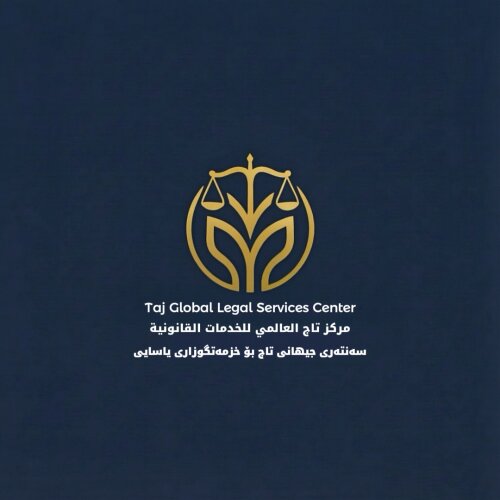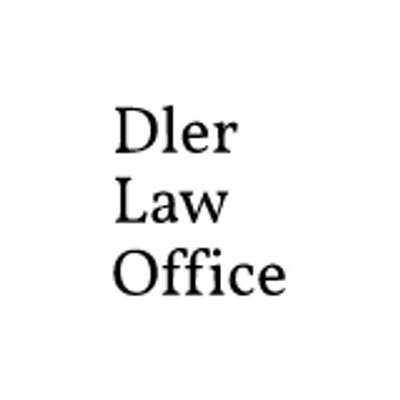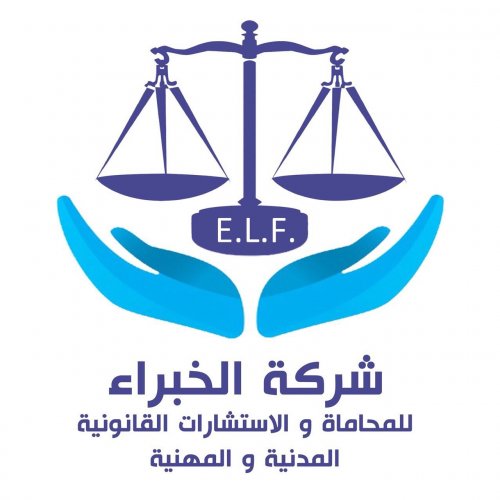Best General Litigation Lawyers in Iraq
Share your needs with us, get contacted by law firms.
Free. Takes 2 min.
Or refine your search by selecting a city:
List of the best lawyers in Iraq
About Litigation Law in Iraq
Litigation law in Iraq is primarily governed by a combination of civil and Islamic law principles, reflecting the country's complex legal history and socio-cultural dynamics. The Iraqi judicial system operates under the auspices of various codes and statutes, and the litigation process is conducted through civil courts, commercial courts, and administrative courts, depending on the nature of the dispute. The legal proceedings in Iraq may include written submissions, oral arguments, and evidence presentation, with a focus on written documentation and testimonials.
Why You May Need a Lawyer
There are several instances where individuals or businesses may require the expertise of a litigation lawyer in Iraq. Common situations include:
- Disputes over contracts or agreements, often involving commercial transactions.
- Family law matters, such as divorce or child custody disputes.
- Property and land disputes, which can be complex due to overlapping claims and documentation requirements.
- Employment disputes, which might arise from wrongful termination or wage disagreements.
- Resolving debt recovery issues or financial disputes.
- Seeking damages or compensation following a personal injury incident.
Engaging a lawyer in such cases can help navigate the legal system, represent your interests effectively, and work towards a favorable resolution.
Local Laws Overview
The legal framework for litigation in Iraq revolves around several key laws:
- Personal Status Law: Governing family-related matters such as marriage, divorce, and inheritance.
- Civil Procedure Code: Outlining the procedures for conducting civil trials, including rules for filing cases, court procedures, and evidence submission.
- Commercial Law: Primarily controlling trade, commerce, and business disputes, significant for Iraqi and foreign companies.
- Administrative Law: Addressing disputes with governmental bodies and authorities, including appeals against administrative decisions.
Understanding these laws is vital for any litigation process, as they form the basis of legal arguments and courtroom proceedings.
Frequently Asked Questions
What types of cases can be taken to court in Iraq?
In Iraq, cases ranging from personal disputes, family law, commercial litigation, property disputes, administrative law issues, and more can be taken to respective courts.
How is a lawsuit initiated in Iraq?
A lawsuit is initiated by filing a written complaint in the appropriate court, specifying the parties involved, the facts of the case, claims, and legal grounds.
Do I need a lawyer to represent me in court?
While not legally mandatory, having a lawyer is highly recommended due to the complexity of legal procedures and the importance of presenting a clear and compelling argument.
What is the role of the judge in Iraqi courts?
Judges in Iraqi courts oversee the proceedings, ensure proper legal procedure, evaluate evidence, and ultimately render decisions or judgments based on applicable laws.
How long does litigation usually take in Iraq?
The duration varies depending on the case's complexity, jurisdiction, and court backlog, but litigation can often take several months to a few years.
Can judgments be appealed in Iraq?
Yes, parties can appeal judgments to higher courts within specified timeframes if there are legitimate grounds for appeal, such as legal errors or procedural faults.
What are the costs associated with litigation in Iraq?
Costs will include court fees, legal fees, potential administrative expenses, and any other related costs. Fee structures can vary based on the case and the lawyer's billing practices.
What language is used in court proceedings?
Arabic is the official language of the Iraqi courts, although some cases involving foreign parties may require interpreters or be conducted in other languages if allowed.
Can settlements be reached outside of court?
Yes, parties are encouraged to reach settlements through negotiation or mediation, which can be a more cost-effective and time-efficient path than courtroom litigation.
What should I prepare before contacting a lawyer?
Gather all relevant documents, evidence, and records related to the case. Be ready to provide a detailed account of the situation and list any questions you may have about the process.
Additional Resources
For further assistance and resources, consider contacting the following organizations and governmental bodies:
- The Iraqi Bar Association: Provides information and support for finding licensed attorneys.
- Ministry of Justice: Offers resources and information on the legal system and access to public legal services.
- Local Legal Aid Services: Assists individuals with limited financial resources in obtaining legal representation.
Next Steps
If you find yourself needing legal assistance in litigation:
- Begin by consulting a licensed Iraqi lawyer specializing in the relevant area of law.
- Prepare and organize all documentation relevant to your case.
- Discuss potential strategies and outcomes with your lawyer.
- Ensure you are informed about all legal fees, potential risks, and your rights before proceeding with litigation.
- Continuously communicate with your lawyer to stay updated on your case's progress and make well-informed decisions along the way.
Taking these steps will help you navigate the litigation process more effectively and work towards a resolution that serves your best interests.
Lawzana helps you find the best lawyers and law firms in Iraq through a curated and pre-screened list of qualified legal professionals. Our platform offers rankings and detailed profiles of attorneys and law firms, allowing you to compare based on practice areas, including General Litigation, experience, and client feedback.
Each profile includes a description of the firm's areas of practice, client reviews, team members and partners, year of establishment, spoken languages, office locations, contact information, social media presence, and any published articles or resources. Most firms on our platform speak English and are experienced in both local and international legal matters.
Get a quote from top-rated law firms in Iraq — quickly, securely, and without unnecessary hassle.
Disclaimer:
The information provided on this page is for general informational purposes only and does not constitute legal advice. While we strive to ensure the accuracy and relevance of the content, legal information may change over time, and interpretations of the law can vary. You should always consult with a qualified legal professional for advice specific to your situation.
We disclaim all liability for actions taken or not taken based on the content of this page. If you believe any information is incorrect or outdated, please contact us, and we will review and update it where appropriate.
Browse general litigation law firms by city in Iraq
Refine your search by selecting a city.

















